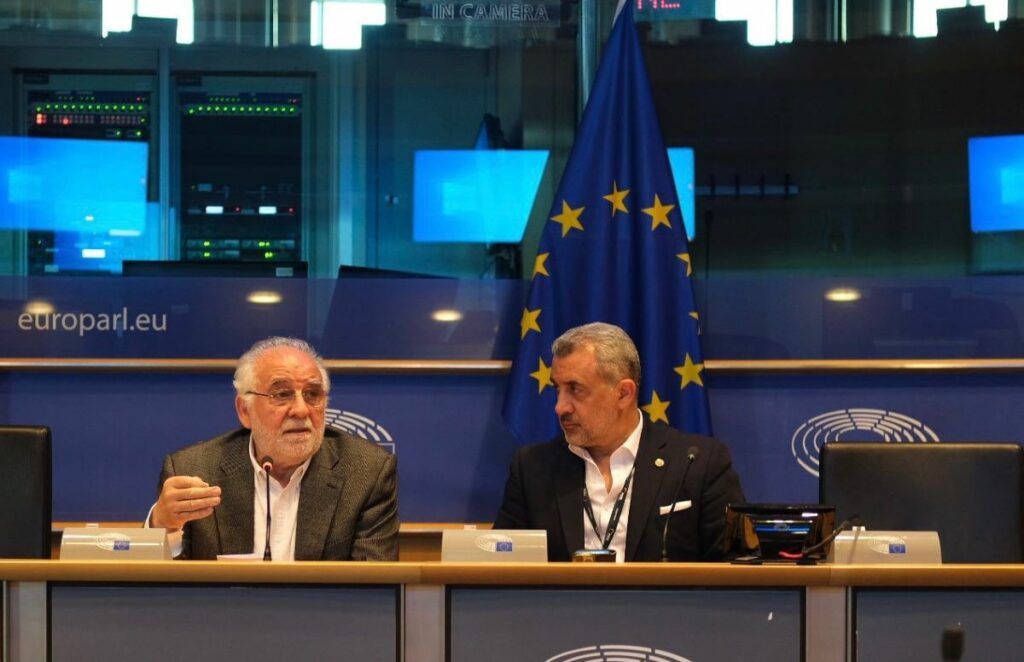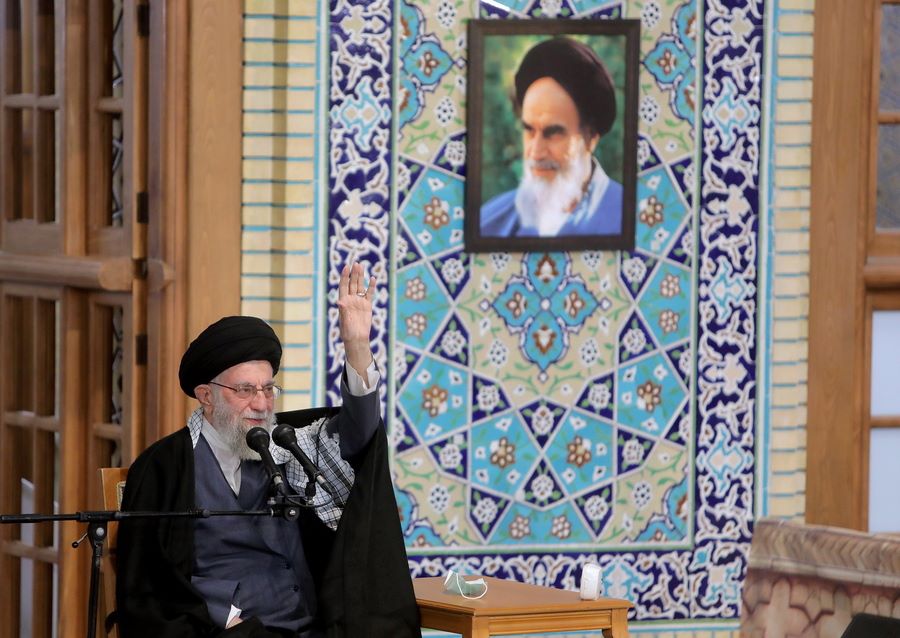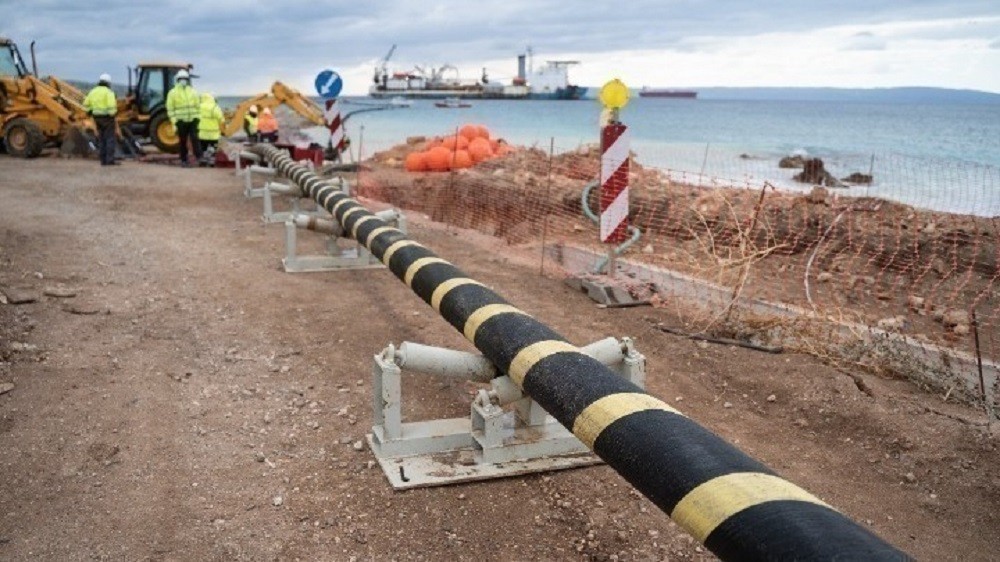
Response to Bloomberg’s article on Cyprus’ political solution and economy
By Dr Aris Petasis*
The following response was sent by me to Bloomberg:
Dear Stephen,
I had occasion to read in Bloomberg yesterday’s (Jan 9, 2014) article by Maria Petrakis and George Georgiou under the title “Exiled Cypriots’ Homecoming Dream Thwarted by Turkey Scandal” and wish to share with all three of you my observations on the contents of this article. I would be much obliged if you were to publish my comments so that your readers can have access to both sides of the argument:
• The Cypriot businessman who was interviewed by Bloomberg said, “A solution to Cyprus can only come if it is imposed from outside, like what happened with the economic crisis.” This kind of statement is indicative of the divide that exists here in Cyprus: a.) on the one side is the vast majority of people that believe in democracy and in peoples’ inalienable right to determine their future and b) those who think otherwise and wish to have outsiders dictate what is best for their country.
I would agree that opening up Famagusta would be a good first step to a solution provided, however, that this is done without any strings attached. I am afraid Turkey will not give back anything if this does not further its aim of total political and military control of Cyprus. As we will see below, Cypriots talk of Famagusta whilst Turkey talks of Varosha. A vast chasm exists between the two.
The English historian who was interviewed by Bloomberg said, “It’s not the complexity of it all, it’s the infinity of it all….There’s about six or seven key areas and we know the rough parameters of a solution in each of them….there hasn’t been that political will to sit down and do the deal.” Anyone who assesses the Cyprus problem outside the context of democracy clearly misses the point. The six or seven key areas now discussed all rest on the philosophy of the Annan plan which the people of Cyprus rejected massively in 2004. Constitutional expert Claire Palley in her book (ref.: Claire Palley “An international relations debacle……”) analyses the voting patterns in the occupied areas of Cyprus and provides evidence that the “yes” vote to the Anan plan came primarily from settlers from Turkey and not from Turkish Cypriots. I can’t see how one can expect to get a different result next time round by bringing back the same plan in disguise and with a heavy dose of propaganda. The people of Cyprus wish to see a democratic solution and everyone ought to respect this. In democracy Cypriots see a prosperous future; for us here in Cyprus survival and democracy are synonymous. It is unfair for anyone to expect the people of Cyprus to agree on a plan that would divide their country along racial lines and to submit to a “guarantor” that has been occupying their country by force of arms for the last 40 years. The list of undemocratic provisions in the Annan plan is endless; I am just highlighting only two of these.
The English historian who was interviewed by Bloomberg said, “Any concession on Cyprus at this stage could be read as an obvious sign of political weakness,” Good to refresh our memory of Turkey’s strategic plan for the recapture of Cyprus that dates back to the mid-fifties (some 60 years back.) Turkey has been pursuing this plan relentlessly over the last 60 years and its military invasion of Cyprus of 1974 is simply one of many acts in this direction. Not many Cypriots expect any concessions from Turkey unless these serve their objective of putting Cyprus under its political and military control.
The Cypriot businessman who was interviewed by Bloomberg said, “….reviving Varosha would provide a fillip to growth that can lift Cyprus out of economic malaise more effectively than the bailout recipe set out by the EU and IMF. Rebuilding the resort will cost as much as 5 billion euros,….” Most of us here in Cyprus make a distinction between Ammochostos (Famagusta and its environs that cover a territory of about 48 sq kilometers) and Varosha (the enclosed area of about 8 sq kilometers.) Turkey rarely, if ever, makes reference to Ammochostos and every now and then brings up Varosha as bait followed by all sorts of demands for the opening up of this small enclosed area. I can’t see how the development of 8 sq kilometers (Varosha), or Famagusta for that matter, will entail the injection of €5bil (or 25-30% of Cyprus’ GDP.) Since the economic crisis hit Cyprus a propaganda campaign is being waged which aims to convince the suffering people of Cyprus that all they need to do to alleviate their economic problems is sign an agreement with Turkey….it doesn’t matter if this is undemocratic. I suspect that this kind of outlandish figure forms part of this overall campaign.
The English economist, resident of Cyprus, who was interviewed by Bloomberg said, “For Greek Cypriots, reunification will open up the closest, biggest and fastest-growing regional market of 70 million Turks…” Cyprus already has the freedom to trade with the 7billion people in all-but-one countries that recognize the Republic of Cyprus. We would be happy to add another 70million on the proviso that the agreement we arrive at with Turkey establishes a fully-fletched democratic political system in Cyprus. Otherwise, I suspect that the indigenous Cypriots will follow the road to exodus and will simply not be around to enjoy the expanded markets of Cyprus that your economist interlocutor projects. Incidentally, reading through your article I searched for the word democracy (or derivative) in reference to a solution of the Cyprus problem but failed to find one such reference.
The Cypriot businessman who was interviewed by Bloomberg said, “First the Greek and Turkish Cypriots have to get their act together.” If it were up to Cypriots to find a solution this would be achieved overnight as there is little separating our peoples. The reality is that we are all victims of Turkey’s strategic objective to control Cyprus militarily and politically; for us Cypriots, putting our signature on any agreement is a matter of life or death and not just “….getting our act together.”
The English historian who was interviewed by Bloomberg said, “….property rights and compensation were among the sticking points that prevented a reunification settlement in 2004.” Here again, the central point of democracy is missed. The settlement plan of 2004 simply did not meet basic/minimum democratic criteria and was rightly and massively rejected. You can’t expect people to approve a plan that will forbid them to settle anywhere they wish in their own country and to exercise their democratic right to vote where they live and, most critically, to put their country under the “guarantee” of its current occupiers and tormentors. A democratic solution can easily take care of property rights just as it does throughout the EU.
* Dr Aris Petasis, is member of the Board of Trustees, International Fund, Moscow State Aviation University

